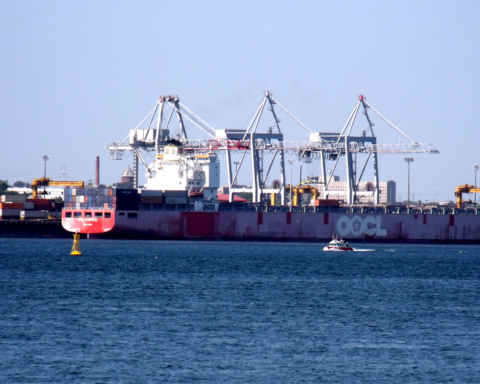Improving its tools for assessing the organization of the port’s workforce and providing procedure guidelines and, at the same time, making the monitoring of the safe performance of port activities timelier and more homogeneous. These are the objectives that the Port Authority intends to pursue with its new ordinance disciplining the employment of personnel hired by companies as per articles 16, 17 and 18 of law 84/94.
Through the regulatory device, presented to the Management Committee today during its last 2021 session, the Port Authority will continue to acquire all data and information on the activities being carried out in the port. However, the new ordinance allows this to be done with a broader analytical spectrum as well as through modalities and timing more in line with the progressive development of ad hoc computer systems.
The process outlined by this ordinance will make it possible – in a forward-looking perspective – to create an increasingly complete and updated database. This will be used, above all, to define the best possible strategies together with the port cluster for the progressive alignment of the port’s workforce and company organizations to the “work of the future.”
Specifically, with the coming into force of the ordinance, all companies authorized under articles 16 and 17 will send the Authority the schedules of their personnel assigned to port operations and services before the beginning of each shift, as well as a monthly summary.
During the meeting, assurances were given that the data submitted by the companies will be collected and used in strict compliance with the provisions in force concerning privacy and company confidentiality.
A new feature is the introduction of a sanctioning system, which, for the Authority’s purposes, is indispensable to encourage a constant, consistent exchange of information with port companies.
According to the president of the Port Network Authority, Luciano Guerrieri, this is a necessary step to ensure long-term high performance standards in line with company needs, with a scheduling that really takes port traffic developments into account.
“Redefining the modalities for carrying out port inspections had been one of the issues raised by the unions during the last meeting held last November 25 at Palazzo Rosciano,” he said.
“We are happy to have provided a clear answer on a very important issue in a reasonably short period of time. Only through a calibrated, precise monitoring activity we will be able to understand if there are any work organization modality problems in our network ports” he concluded.
“We don’t want to be policemen but in difficult times like the ones we are going through employment stability has to also be guaranteed through greater efficiency and effectiveness and streamlining administrative procedures. Only in this way we can try to ensure lasting peaceful industrial relations in the port and fair competition among companies,” the Managing Director, Matteo Paroli, pointed out.
The Ordinance in question replaces No. 9 of 2014, issued by the former Livorno Port Authority: however, companies will be given time to gradually adapt to the new provisions.
Translation by Giles Foster




